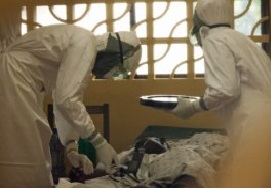Cape Town — Most Africans say their governments are failing in the fight against corruption, and many believe the situation has deteriorated in the last decade, according to the continent’s most comprehensive survey of public opinion.
The survey also says nearly one in three Africans say they have paid a bribe in the past year, and almost one in five have paid it to a government official to get an official document or permit. The survey shows that corruption hits those living in poverty the hardest, and police forces are the government institutions most often accused of taking bribes.
These are among the major findings of the latest Afrobarometer survey of public opinion in 34 countries. Afrobarometer is a research project coordinated by independent institutions in Ghana, Benin, Kenya and South Africa, with partners in 31 other countries. It says its surveys are based on nationally representative samples and thus represent the views of about three-quarters of Africans.
The newest report from the survey conducted between 2011 and 2013 was published in Dakar on Wednesday.
It says that 56 percent of the 51,000 people surveyed believe their governments are doing « fairly badly » or « very badly » in the fight against corruption. Only 35 percent say their governments are doing « fairly well » or « very well ».
Nigerians and Egyptians are the most dissatisfied – 82 percent in each country feel their governments are doing badly – followed by Zimbabweans (81 percent), Ugandans and Sudanese (76 percent), Kenyans (70 percent), Malians (69 percent), Tunisians (67 percent), Togolese, Tanzanians and South Africans (66 percent).
More than half of Liberians (63 percent) and Ghanaians (54 percent) also rated their governments’ performances poorly. In Sierra Leone, less than half (44 percent) say their government is doing badly – although the survey also shows that Sierra Leoneans are top of the list in the proportion of citizens who say they have had to pay a bribe in the past year.
Malawians and the Basotho are the least dissatisfied with their governments over corruption, with 28 percent of people rating their governments poorly. In Botswana the figure is 29 percent, in Senegal 32 percent and in Niger 39 percent.
The report says that in the 16 countries surveyed since 2002, those who rate their governments’ performances poorly rose from 46 percent to 54 percent of respondents. Perceptions of government performance worsened in 11 of the 16, with Kenya, Zimbabwe, Ghana and Tanzania doing worst.
In Kenya, only 11 percent of people said in 2003 the government was failing, but the figure rose to 70 percent in 2011. Afrobarometer attributed the 2003 figure to « public euphoria » after the 2002 election, in which an incumbent government was removed for the first time.
In Zimbabwe, negative ratings went up by 43 percentage points – from 38 percent in 2002 to 81 percent in 2012 – and in Ghana by 31 points and Tanzania 25 points.
The most notable improvement was in Malawi, where those who gave their government negative ratings dropped by 40 percentage points (from 68 percent ratings to 28 percent). There were also improvements in perceptions in Lesotho (18 points), Botswana (11 points) and Senegal (10 points).
Other findings in the report:
« Police attract the highest ratings of corruption across the 34 countries, with 43 percent of people saying that « most » or « all » of them are involved in corruption. Negative perceptions are highest in Nigeria (78 percent), Kenya (69 percent) and Sierra Leone (69 percent). »
« Almost one in five people (18 percent) who had gone without enough food to eat one or more times in the past year had paid a bribe to a government official in the past year to obtain medical treatment, compared with just 12 percent among those who never went without food. »
« Almost half the people (46 percent) who go without enough food to eat one or more times a year rate « most » or « all » of police to be corrupt, compared to 39 percent among those who never go without food. And 31 percent of the poorest perceive judges and magistrates to be corrupt, compared to 24 percent among better off citizens. »
In its conclusions, the report says although the fight against corruption « has had a very high profile in the last decade… Afrobarometer data shows that these efforts have not been sufficient to curb corruption levels.
« Moreover, the poor’s experience with corruption in their day to day interactions with public servants may contribute to increasing social inequality and exacerbating the differences between the rich and the poor…
« High levels of corruption are also associated with dysfunctional democracies; those who perceive high levels of corruption in their national institutions, and those who experience it personally in their daily lives, are more likely to report being dissatisfied with the way democracy works in their country. »
The 34 countries surveyed were Algeria, Benin, Botswana, Burkina Faso, Burundi, Cameroon, Cape Verde, Cote d’Ivoire, Egypt, Ghana, Guinea, Kenya, Lesotho, Liberia, Madagascar, Malawi, Mali, Mauritius, Morocco, Mozambique, Namibia, Niger, Nigeria, Senegal, Sierra Leone, South Africa, Sudan, Swaziland, Tanzania, Togo, Tunisia, Uganda, Zambia and Zimbabwe.
BY John Allen




